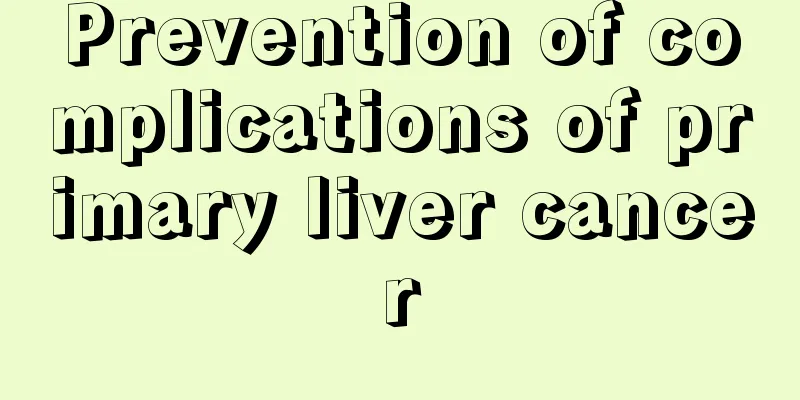Symptoms of inferior wall myocardial infarction

|
The health of the heart is an aspect that people always pay attention to, because the heart is one of everyone's core organs and plays an extremely important role in the health and integrity of life. Once the heart is diseased, it may cause serious problems and bring great damage to people's lives. For example, myocardial infarction is one of the common problems. Let's take a look at the symptoms of inferior wall myocardial infarction. About half of the patients with acute myocardial infarction have prodromal symptoms 1 to 2 days or 1 to 2 weeks before the onset of the disease. The most common ones are worsening of existing angina pectoris, prolonged attack duration, or worsening of the effect of nitroglycerin; or sudden onset of prolonged angina pectoris in those who have never had angina pectoris in the past. Typical symptoms of myocardial infarction include: 1. Sudden onset of severe, persistent, squeezing pain behind the sternum or in front of the heart Rest and sublingual nitroglycerin cannot provide relief and are often accompanied by irritability, sweating, fear, or a sense of impending death. 2. A small number of patients have no pain: they initially present with shock or acute heart failure. 3. Some patients experience pain in the upper abdomen, which may be misdiagnosed as acute abdomen such as gastric perforation and acute pancreatitis. A small number of patients experience pain in the neck, jaw, pharynx and teeth, which can be easily misdiagnosed. 4. Mental disorder: may occur in elderly patients. 5. Systemic symptoms: indescribable discomfort, fever. 6. Gastrointestinal symptoms: nausea, vomiting, abdominal distension, etc., which are more common in patients with inferior wall myocardial infarction. 7. Arrhythmia: seen in 75% to 95% of patients, occurring within 1 to 2 weeks of onset, more common within 24 hours. Ventricular arrhythmias are more likely to occur in anterior wall myocardial infarction, while bradycardia and atrioventricular conduction block are more likely to occur in inferior wall myocardial infarction. 8. Heart failure: mainly acute left heart failure, which is prone to occur within the first few hours of onset, or may occur several days after onset, and manifests as symptoms such as dyspnea, cough, cyanosis, and irritability. 9. Hypotension and shock: In acute myocardial infarction, severe pain, nausea, vomiting, sweating, hypovolemia, arrhythmia, etc. may cause hypotension. In large-area myocardial infarction (infarction area greater than 40%), cardiac output decreases sharply, which may cause cardiogenic shock, systolic blood pressure <80mmHg, pale complexion, cold and clammy skin, irritability or apathy, increased heart rate, and decreased urine volume (<20ml/h). |
<<: Can I go to the toilet if my water breaks
>>: Symptoms of premature rupture of amniotic fluid infection
Recommend
What is the reason for the growth of pimples on the glans?
Many patients develop erythema or small papules o...
How to deal with suppuration after mole removal
Moles are very common in normal times. Moles can ...
What harm will happen if you accidentally consume alcohol
In daily life, we often use alcohol for disinfect...
Why do I feel like vomiting after eating an apple?
Apples are very nutritious. Many people like to e...
How about Hawthorn, Cassia Seed and Corn Silk Dehumidifying Tea
Hawthorn, cassia seed, and corn silk are used to ...
Chemotherapy-assisted treatment of invasive breast cancer
Breast cancer is one of the most effective solid ...
The tip of the tongue hurts and turns red
In fact, many symptoms of diseases in the human b...
There are white spots on my arms, what's going on?
In the hot summer, most people choose to wear sho...
What should I do if I am allergic to metal? What are the methods?
Some of our friends may suffer from allergies, an...
Symptoms of neurosis
People should pay attention to neurological disea...
Under what circumstances should thyroid cancer be considered malignant
Under what circumstances should thyroid cancer be...
What are the dangers of prostate cancer?
Most men know that prostate cancer is a very scar...
Is there any secret recipe for lymphoma and any other method to treat it
There are many ways to treat lymphoma, and patien...
Face turns red and hot in winter
The reason why our face becomes red and hot in wi...
What should I pay attention to after lung cancer surgery? How should I take care of myself after lung cancer surgery?
The full name of lung cancer is bronchial lung ca...









